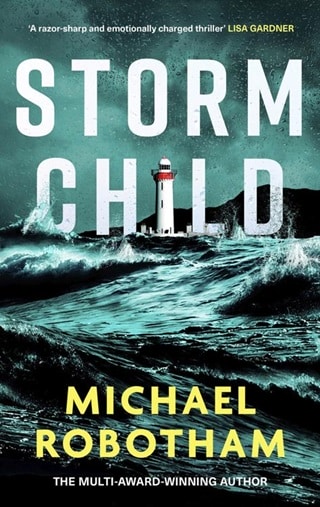28 Evie
28
Annie has two of her grandchildren at the shelter today, who are chasing the puppies around the garden. Although deep in paperwork, Annie is keeping watch from her office. She's one of those no-nonsense, jolly women, with a booming voice and huge, pillow-like breasts that smother people when she hugs them. If one of her grandchildren ever goes missing, I know where I'd look first.
‘Your phone is ringing,' she calls. I retrieve the handset from my jacket. I don't recognise the number. It could be Dr Bennett.
‘Hello?'
The silence is filled with soft breathing.
I try again. ‘Hello?'
‘?'kemi,' says Arben, speaking in Albanian.
‘Are you OK?'
‘Po.'
‘Where are you?'
‘At the police station. I leave today.'
‘Where are you going?'
‘To a children's home.'
I've been to a few of those, I want to say, but I try to be positive. ‘They're not so bad. The food is awful, but you get a room to yourself.'
Another long pause.
‘I saw Besart's body,' he says. ‘I know they showed me a photo, but I didn't believe he was dead, not until . . .'
‘I'm sorry.'
He goes quiet, as though expecting more.
‘I know what it's like to lose someone,' I say. ‘My parents died when I was young.'
‘You're an orphan?'
‘Yes.'
‘I wish I had drowned with the others.'
‘Don't say that. You'll be safe now and the police are looking for Jeta.'
‘How will she find me?'
‘That'll be the easy part. You're famous.'
‘What does famous mean?' he asks.
I struggle to explain and it's probably not the right word. Cyrus would know what to say.
I try again. ‘You're the boy who survived. She'll find you.'
The words sound convincing, but being famous didn't help me. I was the girl in the secret room. Angel Face. Nobody came to claim me.
‘Will you visit me?' asks Arben, who has to go.
‘Yes. Call me when you get there. Good luck.' I don't know if he hears the last two words.
Out in the yard, the children are still playing with the puppies. I know all of the dogs' names because most of them were dumped on our doorstep or delivered by members of the public. I bottle fed some of those puppies – the ones that hadn't been weaned – and I kept them warm with electric blankets or with my own body. I wanted to save every one of them because they were orphans like me.
* * *
I was sitting next to Mina, reciting our six times table, when the message came to the classroom. My teacher took me to the administration office, where a young policeman was waiting. He stood with his cap in his hands, looking at his shoes, saying that I was needed at home.
I thought he had the wrong child until I saw Agnesa in the back seat of the police car.
‘What is it? What's happened?' I whispered.
She took my hand, squeezing my fingers until they hurt.
Mama came to the door of the cottage when she heard the car pull up. Her hand went to her mouth, and she screamed so quietly that I thought only dogs could hear it because all across the village they began barking.
An older police officer waited until we were all seated on a sofa, side by side, Mama in the middle. He did not have a cruel face. He did not have a kind face either.
‘Mrs Osmani. I regret to inform you that your husband, Daniel Osmani, has been injured in an accident at the Kabazi slaughterhouse.'
‘What sort of accident?' asked Agnesa.
‘A knife wound. Inadvertent. It is a dangerous job working with knives.'
‘Where is he?' asked Mama.
‘Can we see him?' I asked.
The policeman looked at us with no expression. ‘He was taken to hospital, but he passed away. His body can be picked up from Adjensi Funeral Home.'
With that, the police officer seemed to run out of things to tell us. English people would say he was ‘lost for words'. In Albania we said his mouth was as empty as his head.
He stood up. The young officer followed suit.
‘I am sorry for your loss,' said the older one, clicking his heels together.
‘I am also sorry,' said his colleague.
After they had gone, Mama stayed sitting on the sofa. Agnesa made her a cup of tea. Nobody spoke. I went to the bedroom and looked at Papa's things – his pipe and pyjamas and the book he had been reading, which had a bookmark between the pages, that I had made him at school, and which left tinsel on his pillow.
I crawled into his closet, among his winter clothes, and put my hands in the pockets, pressing my cheek against the wool, smelling his smell.
Later that evening, they brought Papa's body home and put it in the kitchen on the table. Mama, Mrs Hasani, Mrs Dushka and Aunt Polina used warm water to wash him down, rubbing a sponge along his arms and over his hands and between his fingers. They dressed him in his best shirt and his brown suit and his polished shoes. They combed his hair and put rouge on his lips.
Later, I lay in bed beside Agnesa.
‘It is my fault,' she said.
‘It was an accident.'
‘No. They killed him.'
‘Who?'
‘Who do you think?'
I put my arms around her. I pictured the baby growing inside her and wondered if it could hear my voice or feel my hand against her stomach.
 Fullepub
Fullepub 



